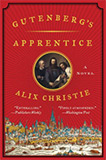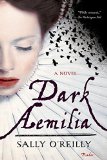Summary | Excerpt | Reading Guide | Reviews | Beyond the book | Read-Alikes | Genres & Themes | Author Bio

A novel
by Jonathan GalassiA first novel, at once hilarious and tender, about the decades-long rivalry between two publishing lions, and the iconic, alluring writer who has obsessed them both.
From the publisher of Farrar, Straus and Giroux: a first novel, at once hilarious and tender, about the decades-long rivalry between two publishing lions, and the iconic, alluring writer who has obsessed them both.
Paul Dukach is heir apparent at Purcell & Stern, one of the last independent publishing houses in New York, whose shabby offices on Union Square belie the treasures on its list. Working with his boss, the flamboyant Homer Stern, Paul learns the ins and outs of the book trade—how to work an agent over lunch; how to swim with the literary sharks at the Frankfurt Book Fair; and, most important, how to nurse the fragile egos of the dazzling, volatile authors he adores.
But Paul's deepest admiration has always been reserved for one writer: poet Ida Perkins, whose audacious verse and notorious private life have shaped America's contemporary literary landscape, and whose longtime publisher—also her cousin and erstwhile lover—happens to be Homer's biggest rival. And when Paul at last has the chance to meet Ida at her Venetian palazzo, she entrusts him with her greatest secret—one that will change all of their lives forever.
Studded with juicy details only a quintessential insider could know, written with both satiric verve and openhearted nostalgia, Muse is a brilliant, haunting book about the beguiling interplay between life and art, and the eternal romance of literature.
At first glance, with none of the traditional love-story cues, Muse does not appear to be a classic example of the form. But the theme of love is omnipresent: Ida's poems detail her myriad trysts, including with both Wainwright and Homer. Paul's own path to love is a quiet search. Each character's pursuit of a satisfying love is a rough journey. This idea is underscored toward the end when Ida entrusts Paul with the responsibility of publishing her last and most powerful work which includes unexpected details about her love life. Love is indeed, as Galassi warns, "a terrible pain."..continued
Full Review
(536 words)
This review is available to non-members for a limited time. For full access,
become a member today.
(Reviewed by Darcie R.J. Abbene).
The title of Jonathan Galassi's novel Muse, refers to the fictional poet that the story centers on, Ida Perkins, who provides inspiration to the literary world.
 A set of Ida's narrative poems is titled "Mnemosyne," whom Paul quickly recognizes as "the Titaness Mnemosyne, goddess of memory and mother of the Muses." The powerful goddess Mneymosyne (pronounced nee-mo-see-nee, source of the word mnemonic) is known as the creator of language and words, the goddess of time and memory, one of the three elder muses. The ability to remember was perhaps most important of all given that everything - all stories and lessons of life - had to be remembered before the advent of the written word.
A set of Ida's narrative poems is titled "Mnemosyne," whom Paul quickly recognizes as "the Titaness Mnemosyne, goddess of memory and mother of the Muses." The powerful goddess Mneymosyne (pronounced nee-mo-see-nee, source of the word mnemonic) is known as the creator of language and words, the goddess of time and memory, one of the three elder muses. The ability to remember was perhaps most important of all given that everything - all stories and lessons of life - had to be remembered before the advent of the written word.
The ancient Gnostics (in Ancient Greek the word...
This "beyond the book" feature is available to non-members for a limited time. Join today for full access.

If you liked Muse, try these:

by Alix Christie
Published 2015
An enthralling literary debut that evokes one of the most momentous events in history, the birth of printing in medieval Germany—a story of invention, intrigue, and betrayal.

by Sally O'Reilly
Published 2015
In rich, vivid detail, Sally O'Reilly breathes life into England's first female poet, a mysterious woman nearly forgotten by history. Full of passion and devilish schemes, Dark Aemilia is a tale worthy of the Bard.